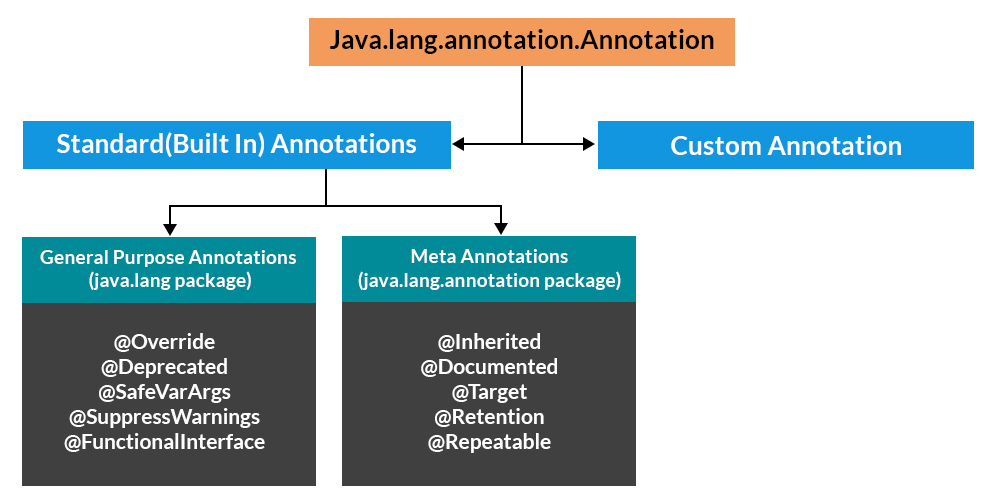

Now we're going to see how to take advantage of them by using Java's Reflection API. requires two Java generics parameters: first is the annotation interface. For example, you can annotate the return type of a method, generic types, including generic type parameter bounds and generic type arguments. An annotation processor processes these annotations at compile time or runtime to provide functionality.

Annotations provide information to a program at compile time or at runtime based on which the program can take further action.
Java annotations on parameters code#
Remember that when using Servlets, the Api would affect the API Object instead as it sets the path. An annotation is a construct associated with Java source code elements such as classes, methods, and variables. So far we've seen how to create custom annotations, and how to use them to decorate the Person class. One other integrity constraint we have to consider is about the values of the. The annotation will affect two parts of the Swagger output, the API Object, which would be created one per path, and the Operation Object, which would be created one per ApiOperation. I am quite certain that everyone is familiar with Java Annotations and at least you must have used the. Moreover, we want the initNames() method to be called before serialization.īy setting the key parameter of the annotation to “personAge,” we are indicating that we'll use this name as the identifier for the field in the JSON output.įor the sake of demonstration, we made initNames() private, so we can't initialize our object by calling it manually, and our constructors aren't using it either. A guide for writing Java custom annotations, which is part of a three-article series. In addition, the output should contain only the firstName, lastName, and age fields of that object. The annotation may be used on a method parameter to define it as a parameter for the operation, and/or to define additional properties for the Parameter. A convention is to call the only method of an annotation value which then can be omitted when the parameter is passed therefore Foo(true) is equivalent to. This.lastName = (0, 1).toUpperCase()īy using our custom annotations, we're indicating that we can serialize a Person object to a JSON string. Class Person String String = "personAge")


 0 kommentar(er)
0 kommentar(er)
